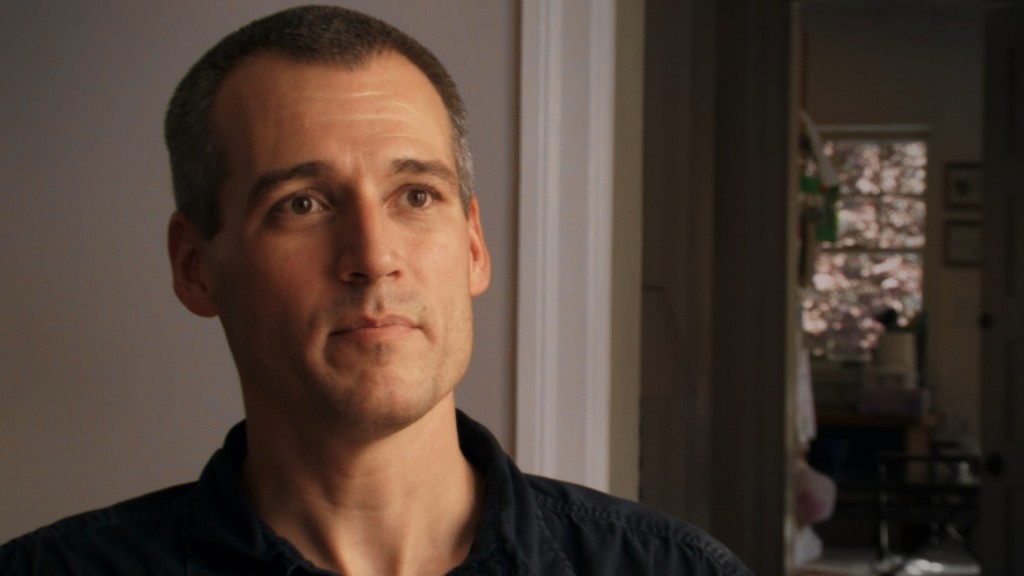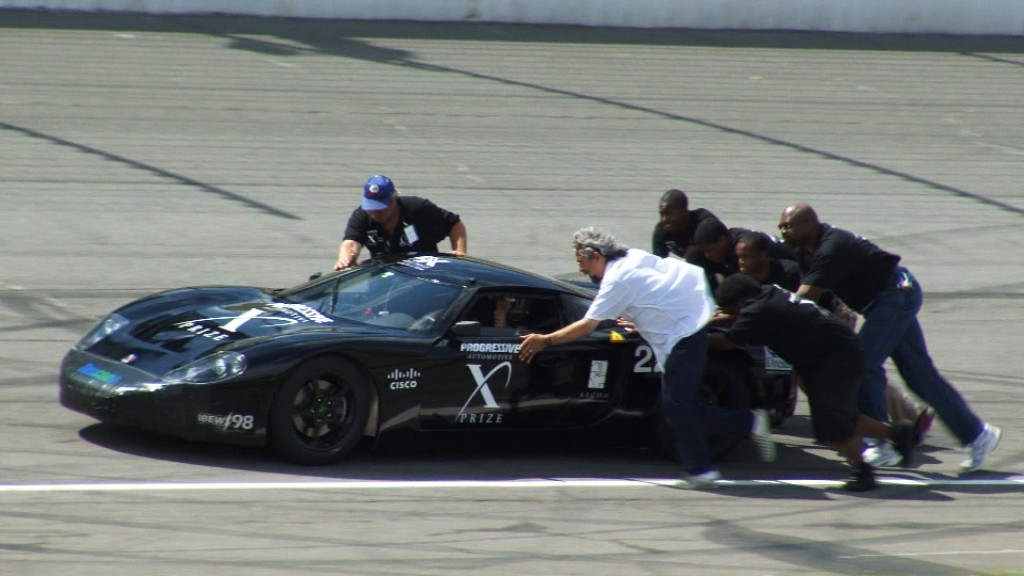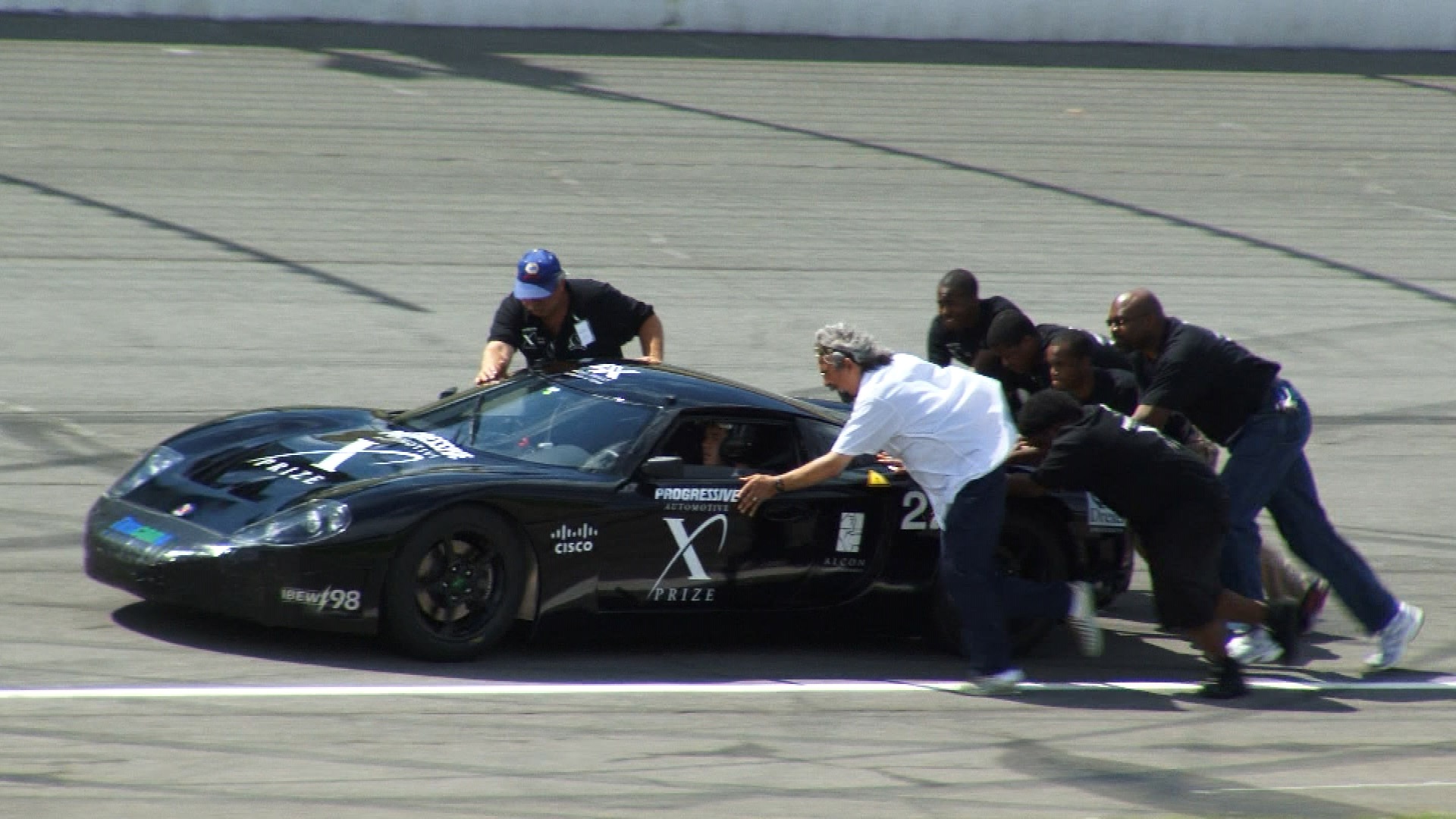What’s Next for West Philly’s EVX Teacher?

July 17, 2012
Share
Simon Hauger is still helping kids invent things.
The engineer-turned-teacher started a new program last year for high school students centered around project-based learning. It’s a similar approach to his experiment with the students from West Philly High, with the goal to become a full-fledged high school by next year.
The Sustainability Workshop is a pilot program linked to the Philadelphia school district, based on the idea that kids learn best when they’re interested in what’s being taught.
Hauger hopes it will become a model for reforming blighted public schools in Philadelphia, where only 61 percent of the students graduated on-time last year. Even that is considered a major improvement from the past decade, when on average only about half of students graduated on-time.
“I’ve worked with too many young people who have been totally underserved, and that’s crazy,” Hauger said.
Launched last September, the workshop brought in 27 high school seniors from area schools. Instead of going to class, they were asked to come up with problems and find ways to solve them, working in groups on a project of their own design.
To ensure the students receive credit for their work, Hauger and his colleagues worked with the Philadelphia school district to identify academic goals they’d need to achieve in order to graduate, such as certain math or reading skills. The workshop staff then links the goals to the student-generated projects, and checks them off once they successfully complete them.
Hauger said that when students tackle problems of their own design, they develop skills such as critical thinking and teamwork, and they learn how to ask the right questions. “There’s a difference between mixing baking soda and vinegar, where we know what the outcome is,” he said. “That’s still a huge improvement over sitting at a desk and listening to a lecture, but not the same experience as engaging in a messy, real-world problem.”
To kick off the year, students created presentations about their talents, interests and longterm goals. They designed plans for a bigger workshop space using Computer Assisted Design (CAD) software, and took on the Philadelphia mayor’s challenge to reduce energy use in city buildings by 10 to 30 percent in their own building.
A few other highlights: One group of students designed high-efficiency, prefabricated homes made from recycled shipping containers.
Another came up with a business plan to encourage homeowners to replace incandescent light bulbs with more energy-efficient LED lights. In their research, students dug up and digested national studies on the lighting industry.
“If I ever assigned even a summary of those reports in a reading class, I would have had a mutiny,” Hauger said. “Now I’ve got students actually reading these and deciding what’s the relevant information.”
The results: Hauger said attendance was high, every student graduated and 24 of the 27 students went on to college. A second class will start here in the fall.
By 2013, Hauger hopes to turn the workshop into a four-year, public high school, with more than 100 students.
There’s still much to do. One of the biggest challenges for Hauger and his colleagues is to figure out how to quantify the progress they’ve made, and show what and how the students are learning. And, he says, the program isn’t for every kid, since many still thrive in traditional school settings.
“We don’t think we are a silver bullet,” he said. But, he added, “I grew up in West Philly. There’s just not a lot of options for students in these neighborhoods. As we grow these schools, that’s what we want — for students … to have some options.”

Related Documentaries
Latest Documentaries
Related Stories
Related Stories
Explore
Policies
Teacher Center
Funding for FRONTLINE is provided through the support of PBS viewers and by the Corporation for Public Broadcasting, with major support from Ford Foundation. Additional funding is provided the Abrams Foundation, Park Foundation, John D. and Catherine T. MacArthur Foundation, Heising-Simons Foundation, and the FRONTLINE Trust, with major support from Jon and Jo Ann Hagler on behalf of the Jon L. Hagler Foundation, and additional support from Koo and Patricia Yuen. FRONTLINE is a registered trademark of WGBH Educational Foundation. Web Site Copyright ©1995-2025 WGBH Educational Foundation. PBS is a 501(c)(3) not-for-profit organization.





















